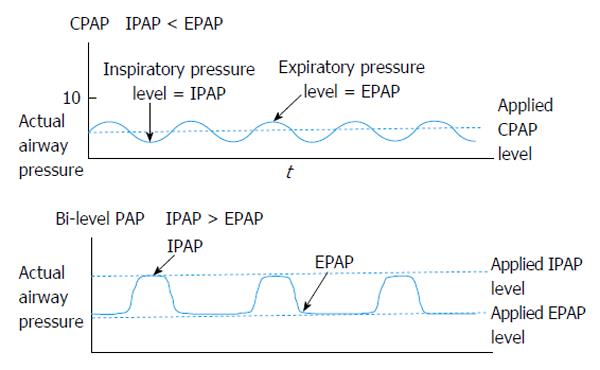Continuous positive airway pressure cpap therapie
Table of Contents
Table of Contents
Are you or a loved one struggling with sleep due to breathing difficulties? Continuous positive airway pressure therapy (CPAP) may be the solution you are looking for. Not only can it improve your sleep quality, but it can also have positive effects on cardiovascular outcomes.
For those with sleep apnea, breathing interruptions during sleep can lead to a variety of health issues including high blood pressure, stroke, and heart attack. CPAP therapy involves wearing a mask that delivers constant air pressure to keep the airway open during sleep. However, some may find it difficult to adjust to wearing a mask while sleeping or experience discomfort.
Despite these potential challenges, the benefits of CPAP therapy on cardiovascular outcomes are significant. According to research, CPAP therapy can lower blood pressure and reduce the risk of heart attack and stroke in those with obstructive sleep apnea. It can also improve heart function in those with heart failure associated with sleep apnea.
In summary, CPAP therapy has the potential to greatly improve not only your sleep quality but also your cardiovascular health. By keeping your airway open during sleep, CPAP therapy can lower the risk of high blood pressure, heart attack, and stroke, as well as improve heart function in those with heart failure associated with sleep apnea.
Personal Experience
As someone who struggled with sleep apnea, CPAP therapy was a game-changer for me. While adjusting to wearing the mask initially took some time, the improvement in my sleep quality and overall health was well worth it. Not only did my blood pressure decrease, but I also noticed an increase in productivity and a decrease in daytime fatigue. If you or a loved one are struggling with sleep apnea, I highly recommend discussing CPAP therapy with your healthcare provider.
Potential Side Effects
While CPAP therapy can greatly improve sleep quality and cardiovascular health, it is important to note that there may be potential side effects. These can include dry mouth, congestion, and skin irritation. However, with proper care and maintenance of the equipment, these side effects can often be minimized or avoided altogether.
Proper Use and Maintenance
In order to ensure the best results and minimize the risk of potential side effects, it is important to properly use and maintain CPAP equipment. This includes washing the mask and tubing regularly, replacing filters as needed, and ensuring that the mask fits properly.
Additional Benefits
In addition to its positive effects on sleep quality and cardiovascular health, CPAP therapy has also been shown to improve symptoms of depression and anxiety in those with sleep apnea. This is likely due to the improvement in sleep quality and the associated increase in energy levels and daytime alertness.
Question and Answer
Q: Can CPAP therapy completely cure sleep apnea?
A: While CPAP therapy can significantly improve symptoms of sleep apnea, it is not a cure. However, it can greatly reduce the negative health effects associated with sleep apnea.
Q: Do I need a prescription for CPAP equipment?
A: Yes, a prescription from a healthcare provider is necessary for CPAP equipment.
Q: Are there alternative treatments for sleep apnea?
A: Yes, there are alternative treatments such as dental appliances and surgery. However, CPAP therapy is typically the first-line treatment for moderate to severe sleep apnea.
Q: Can CPAP therapy be used for children with sleep apnea?
A: Yes, CPAP therapy can be used for children with sleep apnea. However, it is important to consult with a pediatric specialist to ensure proper use and maintenance of the equipment.
Conclusion of Continuous Positive Airway Pressure Therapy and Cardiovascular Outcomes
Continuous positive airway pressure therapy (CPAP) has the potential to greatly improve sleep quality and cardiovascular health in those with sleep apnea. While there may be potential side effects and challenges in adjusting to the equipment, the benefits are significant. Proper use and maintenance of CPAP equipment is essential for optimal results. If you or a loved one are struggling with sleep apnea, discussing CPAP therapy with your healthcare provider may be the first step in improving your overall health and well-being.
Gallery
Mechanism Of Action Of Continuous Positive Airway Pressure Therapy IV

Photo Credit by: bing.com / airway pressure positive continuous therapy iv
Continuous Positive Airway Pressure (CPAP) Devices Market

Photo Credit by: bing.com / pressure positive airway continuous cpap devices types market machine breathing bipap different insights premium press release
Continuous Positive Airway Pressure Therapy | Nursing Information

Photo Credit by: bing.com / pressure continuous positive airway therapy
Positive Airway Pressure Therapy For Heart Failure

Photo Credit by: bing.com / pressure airway positive continuous bi level therapy 1175 wjc heart failure v6 i11
Continuous Positive Airway Pressure (CPAP) -Therapie

Photo Credit by: bing.com / cpap apnea airway nasal sleepers suffering bipap snoring therapie hable dificultades prism somsak eyeem using copd galeon fitnesslifestylehealthclub



